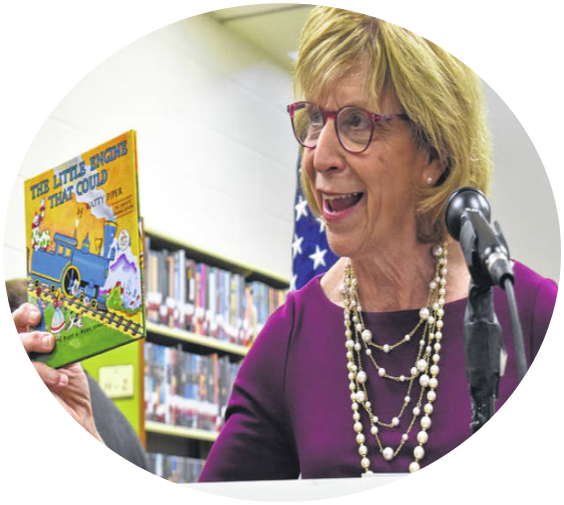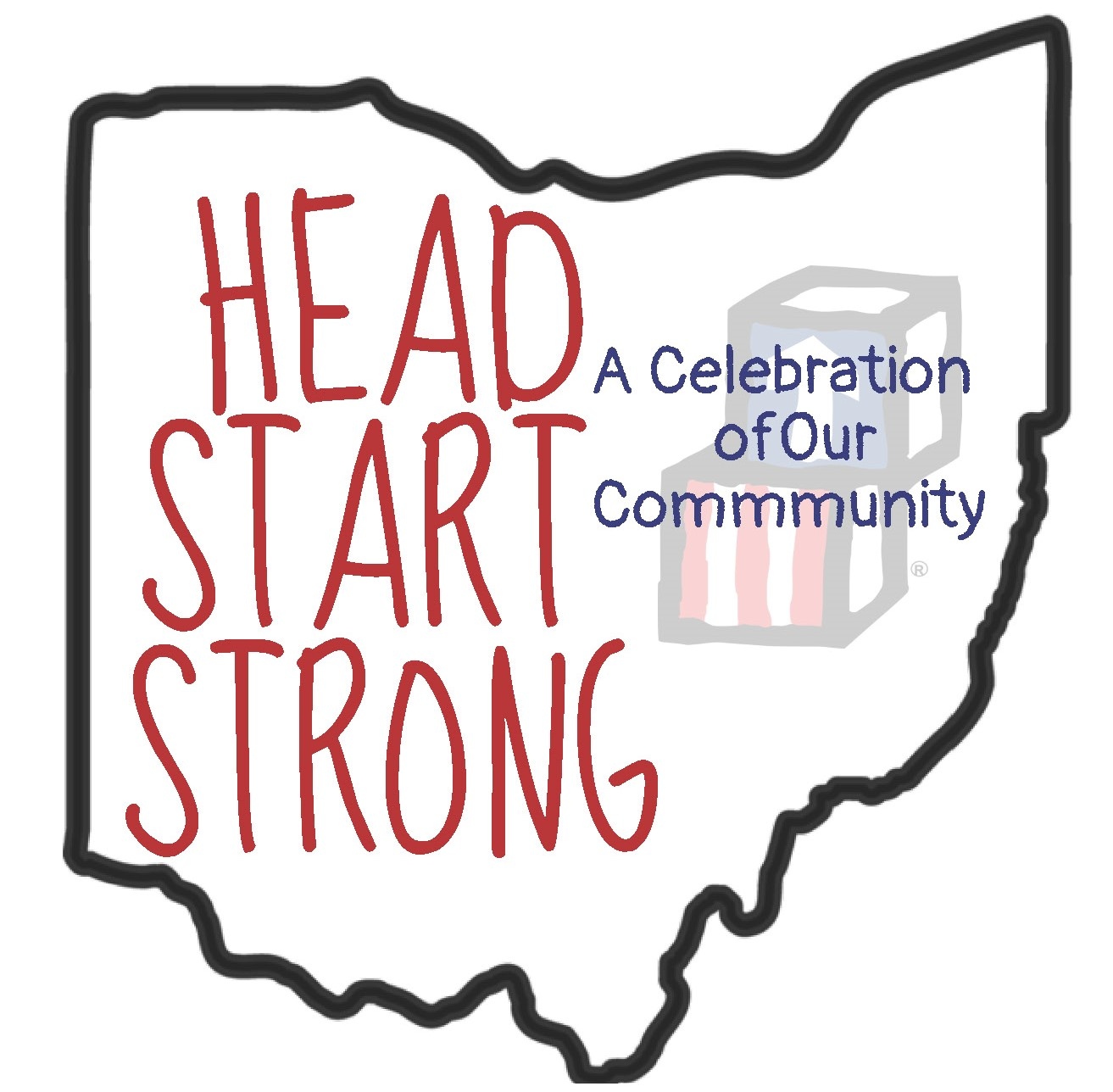10:00 AM - 3:30 PM

LIVE Virtual Event via Zoom – June 9 - 10
This special event will provide the opportunity to take a deeper diver into some key topic areas. Each session is a six-hour track that will take place over two days. We will close the event with a General Session that will reflect on and celebrate the year behind us and inspire and motivate as we look at the year ahead.
This event is not part of the OHSAI subscription package. Registration fee is $150.
June 9th - June 10th
9:30 a.m. to 3:30 p.m. Lobby Open for technical assistance or other questions
Special Tracks (participants select one 6-hour track)
June 9th, 10:00 a.m. to 12:00 p.m. and 1:30 p.m. to 3:30 p.m.
June 10th, 10:00 a.m. to 12:00 p.m.
Emotional Intelligence, the Rest of the Story *
Barbara Haxton, Ohio Head Start Association
Emotional intelligence is the ability to understand and manage your own emotions, and those of the people around you. People with a high degree of emotional intelligence know what they're feeling, what their emotions mean, and how these emotions can affect other people. For leaders, having emotional intelligence is essential for success.
In this session, after a brief review of Self-Awareness, participants will take a closer look at the other four components of Emotional Intelligence.
- Self-regulation is the ability to control or redirect disruptive impulses and moods, and the propensity to suspend judgement and think before acting.
- Internal motivation is a passion to work for internal reasons that go beyond money and status – which are external rewards – such as an inner vision of what is important in life, a joy in doing something, curiosity in learning, a flow that comes with being immersed in an activity.
- Empathy is the ability to understand the emotional makeup of OTHER people. A skill in treating people according to their emotional reactions.
- Social Skills – a proficiency in managing relationships and building networks and an ability to find common ground and build rapport.
Learning Outcomes:
- Define self-regulation and its hallmarks, and apply to leadership practice.
- Define internal motivation and its hallmarks, and apply to leadership practice.
- Define empathy and its hallmarks, and apply to leadership practice.
- Define social skills and their hallmarks, and apply to leadership practice.
Community Assessment and Recruitment - Looking At & Beyond the Foundation *
Kristin Banks, Elizabeth Pfenning and Rachelle Myers, STG International
The COVID-19 pandemic changed the world. As community leaders and service providers, it is our responsibility to connect with our communities in the now and in the tomorrow. Acknowledging the pandemic and post-pandemic needs in our service areas and adjusting how we reach children families are immediate priorities. The pandemic left our world different, so we need to move forward differently.
Participants will engage in conversations and activities to enhance their understanding of the following Steps for Conducting a Community Assessment:
- Step 1: Plan and Organize
- Step 2: Design the Work
- Step 3: Gather Data
- Step 4: Analyze and Make Decisions
- Step 5: Communicate and Incorporate
Participants will engage in conversations and activities using the Head Start Management Systems Wheel, Head Start Planning Cycle, and Community Assessment with a focus on Recruitment. Activities will include sharing ways to use the Community Assessment to target recruitment efforts and define target audiences, considering the impacts that the pandemic has had on their programs to shape new strategies for recruitment, and developing a post-pandemic marketing plan for their programs.
Participants will use the reflective practice tools to develop a take-home action plans.
Learning Outcomes:
- Understanding the requirements for community assessment
- Explore the recommended process for conducting a community assessment
- Recognize the importance of the community assessment as a planning tool
- Identify strategies and resources for supporting the community assessment
- Identify strategies for supporting grantees in achieving and maintaining full enrollment
- Examine the elements of effective outreach and recruitment
- Review resources that support the full enrollment effort
Applying and Practicing Advanced Motivational Interviewing Skills *
Jennifer H. Haywood, LISW-S, LICDC-CS
Difficult conversations take place in many settings in our Head Start world including among staff, with families, and within communities. When used effectively, Motivational Interviewing can open deeper dialogues and lead to more positive relationships. Participants will review the top ten most important Motivational Interviewing skills to use when working with difficult and complicated situations. Participants will consider application in specific scenarios and will practice applying techniques through role playing. The goal of the session is to increase confidence in applying skills to promote personal and professional growth.Learning Outcomes:
- Articulate Motivational Interviewing skills
- Identify ways to integrate learned techniques in various settings
- Examine personal case studies through a MI framework
- Share challenges and successes and begin plan to integrate MI into current work
- Using most challenging cases, identify ways to further integrate MI
- Demonstrate MI skills and process feedback
Reflecting on Self-Care and Critical Consciousness through an Equity, Diversity and Inclusion Lens *
Dr. Hope M Bland, Department of Equity, Diversity and Inclusion, Toledo Public Schools
Head Start was founded with the mission to empower marginalized Americans by partnering with families to prepare their children for success in school and life. Prioritizing equity, diversity, and inclusion within our programs and throughout our practices and relationships is essential to keeping the Head Start promise. This session will examine concepts of bias, inclusion, microaggressions with opportunities for processing and reflection. Participants will explore these concepts along with strategies to increase cultural awareness to improve their practice and ultimately the quality and effectiveness of their work with families.Learning Outcomes:
- Define and apply the concepts of Equity, Diversity and Inclusion
- Define and contrast Bias and Implicit Bias
- Define and apply the concept of Inclusion
- Identify components of Self-Care in Racial Equity work
- Define Microaggression and strategies to increase cultural competency
Practice Based Coaching-Reflecting on the Keys to Quality *
Carla Aronhalt and Michelle Self, STG International
Coaching, teaching, and child learning are all inter-connected. As a Coach, you hold the key. Quality coaching supports quality teaching and home visiting, and quality teaching promotes school readiness and positive outcomes for all children.This track will support coaches in utilizing the 3 keys of collaborative coaching partnerships. Over the course of three, 2-hour sessions, participants will take a deeper dive into Shared Goals and Action Planning, Focused Observations, and Reflection and Feedback. Examination of each “Key” will allow participants to gain understanding and strategies to support staff in connecting knowledge and skills to build effective practices for positive child outcomes.
Learning Outcomes:
- Identify the three Keys within Collaborative Coaching Partnerships
- Support staff in creating shared goals and action plans to strengthen interactions with children in the classroom or on Home Visits
- Utilize tools and knowledge to build on effective focused observations for PBC supports with staff
- Utilize Reflection and Feedback strategies to support staff in implementing effective teaching practices in the classroom or on Home visits
Transforming Family Engagement *
Rozlyn M. Grant, M.A. Ed, Director of Curriculum and Instruction for Early Learning, The Centers for Families & Children
The pandemic has tested our Family Engagement skills like no other time. Head Start professionals have pivoted and shifted to meet the many and varying needs of families. As we look to the future, solidifying a Maslow approach to Parent Engagement can create a framework that will transform and strengthen our relationships with families. Participants will discuss and apply theory as it applies to connection. The interactive content will focus on examining and adopting strategies with an emphasis on setting up structures to strengthen compliance and increase engagement, with dedicated time for reflection and planning next steps. This session is geared toward Head Start staff who work closely with parents as well as parent leaders.Learning Outcomes:
- Define and discuss theory and how it impacts practice
- Demonstrate the importance of "connections"
- Recognize and sort physical structures that support connection and compliance
- Plan for family engagement, implementation and reflection
Inquiry Driven Practice in Early Childhood Education *
Rachel Konerman, Early Childhood Teacher Education Specialist, University of Cincinnati
In this session, participants will explore the cycle of inquiry as a strategy for engaging both children and adults in meaningful, authentic learning experiences. Through conversations, reflection, and trainer presentations, each participant will personally engage in a mini-project during the session. Specific teaching strategies and environmental design inspirations will provide participants with a springboard to bring inquiry driven practices into their own professional approach in the many different contexts of our current and future services.Learning Outcomes:
- Describe the cycle of inquiry
- Articulate the benefits of including inquiry in early childhood classrooms or as professional development for early childhood professionals
- Plan for and implement teaching strategies to support inquiry in early childhood settings
- Design a physical, social, and temporal environment that supports inquiry
Thursday, June 10th
1:30 p.m. to 3:30 p.m. General Session
Special Guest -
First Lady Fran DeWine
Imagination Library
 Keynote Speaker -
Keynote Speaker -
Drew Dudley
Day One Leadership
CLICK HERE TO VIEW A PREVIEW AND SPECIAL MESSAGE FROM DREW
 Head Start Strong -
Head Start Strong -
A Celebration
* These sessions are approved for IACET CEUs. IACET CEUs can count toward Ohio Approved credit. For more information about CEUs and OHSAI’s Professional Development policies and practices, visit www.ohsai.org/professional-development-information/